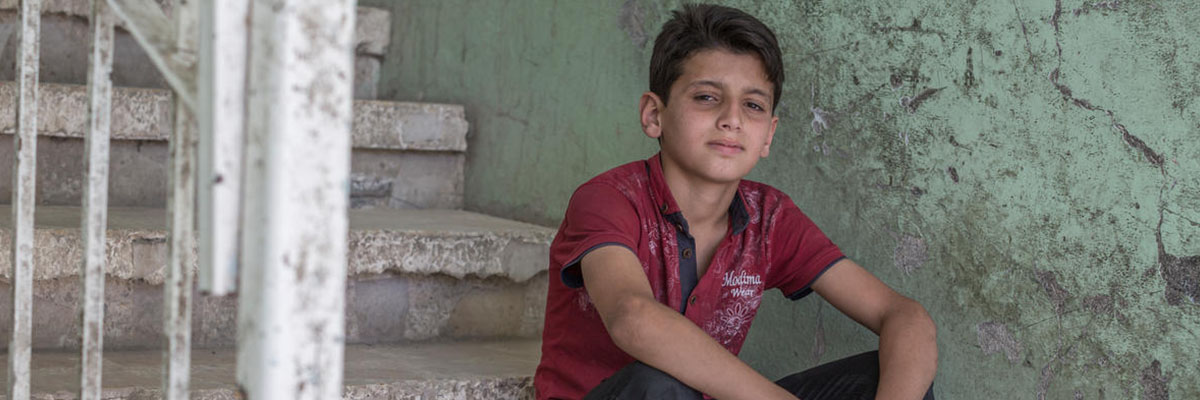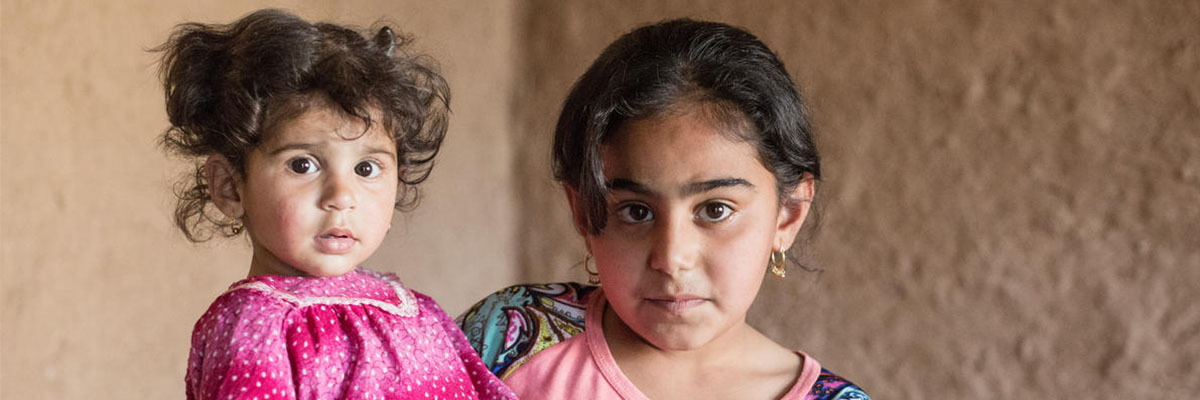A year since their city was retaken from ISIS, Mosul’s children are still living in constant fear
In June 2014, the city of Mosul in northern Iraq fell under the control of the Islamic State of Iraq and Syria (ISIS). Over the following two and a half years, Iraqi children were subjected to some of the most heinous violations of their rights imaginable.
Their city has been taken back, but the trauma of war lives on.
‘Picking up the pieces’ is a new report written by Save the Children that reveals how life under ISIS has profoundly impacted the mental health of children who lived through its reign.
Drawing from interviews with children and families from west Mosul, the report tells of children returning home to find dead bodies littering the streets, homes and schools destroyed and basic amenities in short supply.
Surrounded by remnants of war
Without having had the time to fully heal from such terrifying experiences, children in Mosul now face constant reminders of what they have lived through. Ongoing violence, booby traps, unexploded mines and unsafe buildings are daily dangers that fuel anxiety and stress.
The report reveals that 83% of the children interviewed said they are afraid when walking alone and only 54% feel safe when they are away from their parents.
Twelve-year-old Fahad* from west Mosul now attends a school with damaged walls and no doors. “I don’t feel good in the class,” he said. “In this area, the sniper targeted the children so that when the mothers and fathers came to rescue them, he would shoot the whole family. The school got badly hit and the area became a frontline. The whole street became a frontline.”

A profound sadness
According to the research, 43% of children reported feeling grief always or a lot of the time. Only 9% could think of something happy relating to their present or future.
To make matters worse, the mental health of their parents and carers has been so badly impacted by the conflict that children have been left with little support, severely limiting their ability to break from the cycle of ongoing stress.
This means they’re turning to their own methods of coping – such as trying to forget, not speaking about their problems and withdrawing from other people. They are increasingly internalising their emotions, admitting they often don’t feel comfortable talking to their families when they feel sad or afraid.
Finding hope for healing
The ‘Picking up the pieces’ report explains that the emotional distress that children are experiencing must be addressed through gentle approaches to help them work through their grief, loss and fear.
It highlights the importance of making sure children feel safe and that instilling hope is crucial to their healing and recovery.
10-year-old Rahaf lost both of her parents and her sister when an airstrike smashed through her home. She was rescued from the rubble but the terrifying experience left her unable to speak for a number of weeks.
With patient and careful support, Rahaf’s mental health is showing signs of improvement. She’s coming out of her shell and has started playing with friends. Significantly, she is able to openly talk about her feelings.
“The most important thing to me is that the war doesn’t happen again,” she says. “I don’t want it to happen again. I don’t want others to be orphaned like me.”

It’s important now that Iraqi communities – with support from agencies like ours –prioritise setting up community groups where problems and solutions can be discussed. Helping children to feel empowered, connected and in control of their own futures is critical to building hope for the generations to come.

*Names changed to protect identity
All Photos: Sam Tarling, Save the Children